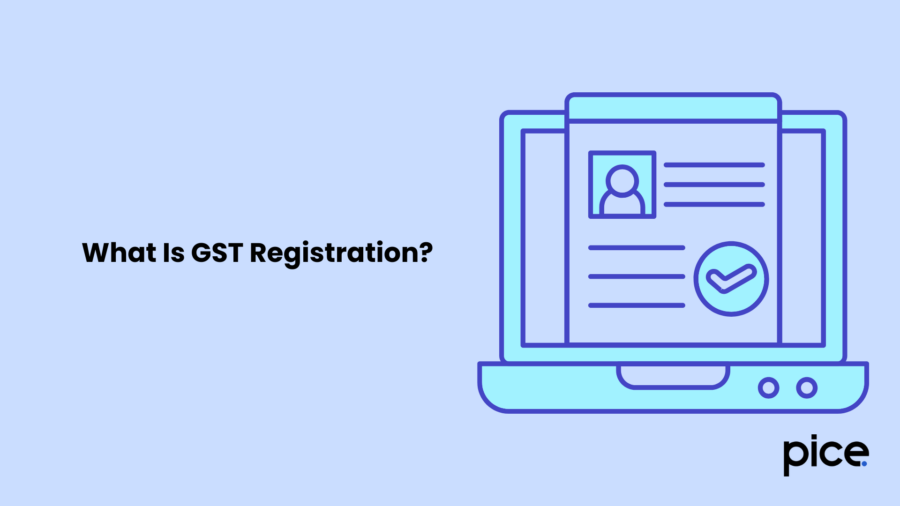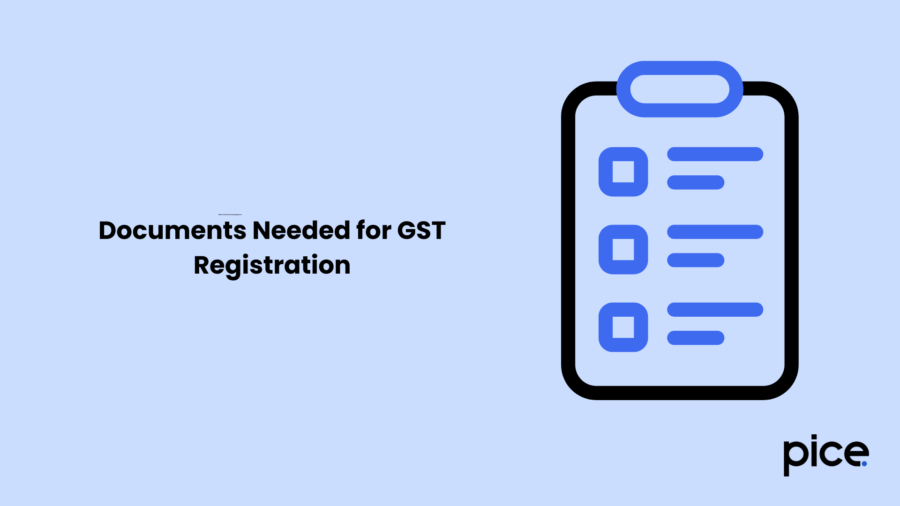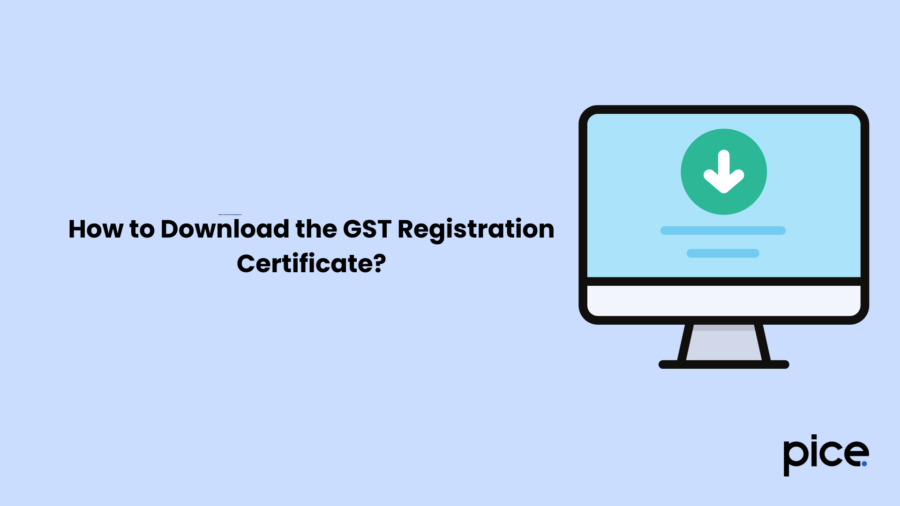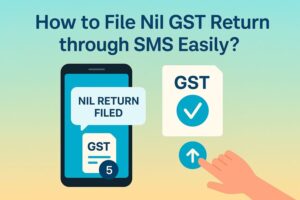All About GST Registration for Private Limited Company
- 21 May 25
- 10 mins

All About GST Registration for Private Limited Company
Key Takeaways
- GST registration is mandatory for private limited companies in India exceeding ₹40 lakh in annual turnover.
- It provides legal recognition, enhances reputation, and ensures tax compliance under Indian law.
- A 15-digit unique GSTIN is issued post verification of submitted documents and application details.
- Failure to register can attract a penalty of up to 100% of the tax due or a minimum of ₹10,000.
- Registered companies benefit from input tax credit, improved cash flow, and eligibility for global collaborations.
Each type of business in India must register for the Goods and Services Tax (GST). Different company forms, including private limited companies, partnerships, sole proprietorships, trusts, and more, are governed by different legal frameworks.
A private limited company must obtain a unique GSTIN number from tax authorities to register itself under the GST law. This 15-digit unique number is provided to every registered taxpayer under the GST regime to track tax payments.
Do you want to register your business under GST? This blog is a step-by-step process on how to perform GST registration for private limited companies.
What is GST Registration?

GST registration is the most fundamental need for identifying taxpayers under the current tax regime and ensuring tax compliance in India. Under the existing legislation, companies need to register for GST if their annual turnover exceeds ₹40 lakh. Contrarily, service providers also have to go through the same process if their annual turnover surpasses ₹20 lakh. However, companies from Northeast and Hill states are exempt from these regulations.
Importance of GST Registration for Private Limited Companies
GST registration for private limited companies is not only a legal requirement but also a strategic approach towards international markets.
To form a business organization under the GST law, a private limited firm must get a unique GSTIN from the appropriate tax authorities. GST allows your firm to be more competitive in foreign markets by bringing India’s tax structure into line with international norms. It also reduces your administrative responsibilities and streamlines online registration.
Advantages of GST Registration for Indian Private Limited Companies
These are the advantages of performing GST registration for private limited companies:
● Tax Credit: You can decrease your tax obligations by letting the authorities deduct your paid GST on purchases from the GST you receive from sales.
● Legal Protection: GST registration also helps you to protect your business interests and grant legal recognition.
● Legal Compliance: You will remain out of trouble and adhere to tax laws after registering for GST.
● Reputation: GST registration also increases consumer trust in your firm.
● Greater Opportunities for Collaboration: GST registration also allows you to collaborate with foreign companies.
● Elimination of Tax Burden: GST registration lessens the burden of taxes on taxes for your private limited company. This also lowers the price of goods and services.
● Better Cash Flow: You will get a reduced tax liability with improved management.
● Transparency in Supply Chain: Registering for GST also ensures correct documentation and increases trust.
Eligibility Criteria for GST Registration
Below are some of the eligibility criteria that you must follow to register your business entity for GST:
● The turnover of your private limited company must surpass ₹20 lakh in a financial year.
● Your business must be registered under any of the existing indirect tax regimes like excise laws or VAT.
● A casual taxable person who supplies goods or services without any fixed place of business.
● You need to pay tax under the reverse charge mechanism.
● Input Service Distributor
● Selling products through e-commerce businesses
● Agents of a supplier
Different Categories of GST Registration
Before registering your private limited company for GST, you need to choose one from the different types of GST registration processes according to the nature of your business turnover:
● Normal Registration: If your business’ aggregate turnover crosses the threshold limit of ₹40 lakh of goods and ₹20 lakh of services, then you must obtain normal taxpayer registration for GST.
● Casual Taxable Person: This category of GST registration is applicable for non-resident taxpayers or companies who supply taxable goods or services. This registration is valid for up to 90 days or the period of supply, which is earlier. In this category, you must pay the deposit amount the same as the amount of GST liability.
● Composition Scheme Registration: Small businesses with a lower turnover than a certain threshold limit can apply for this composition scheme. You can opt for this scheme if your turnover is more than ₹1.5 crores. However, businesses with a turnover of ₹1.5 crore and ₹75 lakh for special category states may apply for the composition scheme.
● Non-Resident Taxable Person Registration: Businesses that are non-resident can obtain this registration for supplying taxable goods and services in India. If your business comes under this category, this registration allows you to operate without a permanent establishment in India for some time.
● Input Service Distributor (ISD) Registration: If your business operates through numerous branches or offices, then you must register as an ISD. This allows you to distribute the input tax credit (ITC) centrally.
● E-commerce Operator Registration: To run an e-commerce platform, your business must register under the GST regime regardless of turnover. Then you can supply goods or services with compliance.
Documents Needed for GST Registration

To perform a GST registration for your private limited company, you need to submit the below GST registration documents:
● PAN card: You need to submit a valid PAN card of your company to collect tax at source.
● Documents for Proof of Address and Identity: You must submit your Aadhaar card, property tax receipt, consent letter from the owner and passport of all directories for identity and address validation.
● Bank Account Details: A recent bank statement, cancelled cheque, the first page of the passbook of your business are also required to confirm bank account details.
● Passport Size Photo: You need to provide recent passport-sized photos of your directors for identity verification.
● Digital Signature: A current Class 2 or Class 3 digital signature certificate is required for signing the GST application.
● Certificate of Incorporation: The certificate of incorporation issued by the Ministry of Corporate Affairs is necessary for establishing the company’s legitimacy.
● Articles and Memorandum of Association: These documents are necessary for providing information on your company’s goals, business structure and operational framework. All of these are important for confirmation at registration.
● Board Resolution Letter: A proof of appointment or a board resolution is required which is designating a person as the authorised signatory for GST registration.
Step-by-Step Guide of GST Registration Process for Private Limited Companies
Registering for GST helps you to access greater business opportunities and reduce your tax burden. The total procedure usually takes 7 to 10 working days based on the accuracy of the application. Follow the below steps to complete the GST registration process for your private limited company:
- Visit the official GST Portal and initiate the process of registration.
- Register your company using a valid email address and mobile number. You will receive a One-Time Password (OTP) to verify your provided details.
- Fill out the GST Registration Form (REG-01) by providing the correct details of your private limited company. Make sure you have entered your company’s legal name, PAN, category of business, director and authorised signatories and place of business properly.
- You need to upload all your necessary documents. These include the PAN details, certificate of incorporation, directors’ identity and address proof, business address proof and bank account details.
- Submit all the details and apply for verification with a GST officer. You need to provide some additional documents if the officer requests further clarification.
- Your private limited company will receive the GSTIN number after the successful verification of your GST registration application and documents. You can use this 15-digit GSTIN number for all GST-related activities.
- Regularly track the application status on the website so you can quickly address any questions of the GST officer.
How to Download the GST Registration Certificate?

Once your private limited company is registered for GST, you can download the registration certificate. The below steps guide you to download your GST registration certificate:
Step 1: Go to the official portal of GST by clicking this link.
Step 2: Select ‘Login’ and you will be redirected to the next page.
Step 3: Enter your username and password and click on ‘Login’.
Step 4: Choose the ‘Services’ option.
Step 5: Select ‘User Services’.
Step 6: Click on ‘View/Download Certificates’.
Step 7: Click on ‘Download’ from the next page. You can see your tax transactions in the downloaded certificate.
What Is the Result of Not Registering With the GST?
If you are running a private limited company, it is mandatory to register your business for GST. You have to pay a penalty of 10% of the tax amount, which can be a minimum of ₹10,000. You must pay this amount if you fail to pay taxes or make short payments. If you are willfully avoiding paying taxes, the penalty will be 100%.
Moreover, failing to complete the registration can restrict you from collecting GST from clients or claiming input tax credits for GST that has been paid.
Conclusion
GST registration for private limited companies is essential for simplifying taxation compliance with Indian tax regulations. Understanding the process of GST registration, submitting necessary GST registration documents like bank account details and address proof and following the registration procedure can help your business obtain its GSTIN efficiently. You can protect your legal recognition, which is important for each business.
Proper registration allows smooth business operations and helps you to get input tax credit benefits. However, failing to register your business with GST can penalise you and restrict your business from collecting tax from customers.
💡If you want to streamline your invoices and make payments via credit or debit card or UPI, consider using the PICE App. Explore the PICE App today and take your business to new heights.
 By
By 
















